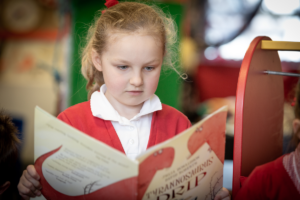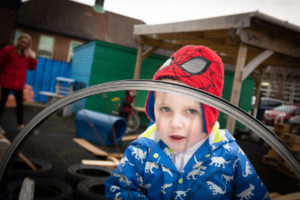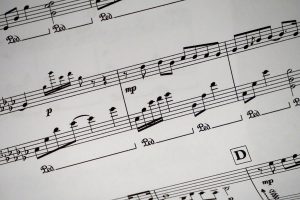Modern Foreign Languages
Purpose of study
Learning a foreign language is a liberation from insularity and provides an opening to other cultures. A high-quality languages education should foster pupils’ curiosity and deepen their understanding of the world. The teaching should enable pupils to express their ideas and thoughts in another language and to understand and respond to its speakers, both in speech and in writing. It should also provide opportunities for them to communicate for practical purposes, learn new ways of thinking and read great literature in the original language. Language teaching should provide the foundation for learning further languages, equipping pupils to study and work in other countries.
Aims
- understand and respond to spoken and written language from a variety of authentic sources
- speak with increasing confidence, fluency and spontaneity, finding ways of communicating what they want to say, including through discussion and asking questions, and continually improving the accuracy of their pronunciation and intonation
- can write at varying length, for different purposes and audiences, using the variety of grammatical structures that they have learnt
- discover and develop an appreciation of a range of writing in the language studied.
| Year 1 | Year 2 | Year 3 | Year 4 |
|---|---|---|---|
| Autumn Commands, greetings, numbers, colours Petit Monstre Bleu story (Parts of the body, colours, adjectives of size) Spring Numbers Tom Le Pirate story (Questions, adjectives, prepositions, directions) Summer L’homme en pain d’epices story (Family members, animals, locations, refrains, prepositions) Revision of Year 1 | Unit 1 Classroom commands, greetings, numbers 0 to 12, classroom objects, rhymes and songs. To say what is in their pencil case, ask others about items in their pencil case and also be able to write some sentences about classroom objects using a writing frame for support. Some children will have progressed further and will: write and say phrases from memory, with clear pronunciation and meaning; take the initiative in pair work and begin to use classroom language spontaneously; identify classroom objects, using the correct gender and using the indefinite article eg une table, une gomme. They will have memorised some rhymes and songs and be able to perform them confidently. In addition they will be able to describe what is in their pencil case, orally and in writing, without support. Unit 2 Simple personal information, days of the week, weather phrases, songs and rhymes, begin to recognise some French phonemes and pronounce sounds of combinations of letters and certain words accurately. | Unit 2 Simple personal information, days of the week, weather phrases, songs and rhymes, begin to recognise some French phonemes and pronounce sounds of combinations of letters and certain words accurately. Some children will have progressed further and will: ask simple questions and write set phrases, using mainly memorised language (their pronunciation and meaning are clear); take part in brief prepared tasks of at least two or three exchanges, using mainly memorised language; use target language to collect and present simple information; show understanding of short, word-processed text, containing familiar language; In addition they will have learnt the weather rap and other rhymes and songs and be able to perform them confidently on their own, or in small groups, in front of an audience. They will be able to describe the weather in different towns and give a short weather forecast and write 2 or 3 sentences describing the weather Unit 3 Set phrases about the family, colour and size of items, understand stories, songs and rhymes,pair and group work, be able to write 2 or three sentences about their family. Some children will have progressed further and will: use visual cues to produce phrases, and sentences about their family or about a traditional story. They will be able to use memorised language to describe their family and reproduce parts of a story. They will confidently sing songs and be able to write a paragraph of 3 or more sentences independently describing a family. | Unit 4 Ask and answer questions about pets, understand masculine, feminine and plural forms of nouns and adjectives, to read and understand short descriptions of pets and to write their own description independently. Some children will have progressed further and will: be able to use short phrases for asking and answering questions about pets, using mainly memorised language. Begin to apply their knowledge of adjectives and verbs in new contexts and create their own language. They will memorise language to perform a playlet and speak in the foreign language with appropriate expression. They will also be able to write 3 or more sentences on their own about pets using adjectives, verbs and simple conjunctions correctly and be able to give an opinion. Unit 5 Talk about birthdays, say two or 3 sentences about their daily routine, describe the weather in different months and seasons and memorise and perform a poem/song about the weather. They will also understand when they hear or read 2 or 3 sentences about daily routine, weather, months and or seasons. In addition they will be able to use a writing frame to write an additional verse to a poem/song and also write 2 or 3 of their own sentences about their daily routine and the weather. Some children will have progressed further and will: be able to understand a short text about daily routines, confidently describe their typical day, and also write a paragraph/letter independently describing their typical day using a variety of sentence starters and some adjectives and conjunctions. |
| TT: To listen and show understanding of single words and familiar short phrases through physical response. | TT: To listen and show understanding of single words and familiar short phrases through physical response. | TT: To listen and show understanding of a range of familiar phrases and sentences. | TT: To listen and show understanding of short texts/ conversations containing familiar and unfamiliar words and more complex sentences. |
| TT: To listen and identify words in songs and rhymes and demonstrate understanding . | TT: To listen and identify words in songs and rhymes and demonstrate understanding . Listen and identify rhyming words and particular sounds in words. | TT: To follow the text of familiar rhymes and songs identifying the meaning of words. Begin to link sound to spelling. | TT: To read the text of familiar songs and poems and identify patterns of language and become more proficient at linking a number of different sounds to spelling. |
| TT: To recognise a familiar question and respond with a simple rehearsed response. | TT: To recognise a familiar question and respond with a simple rehearsed response. | TT: To ask and answer several simple and familiar questions independently. | TT: To ask and answer more complex familiar questions independently or with a scaffold of responses. Ask for clarification and help. Express an opinion. |
| TT: To repeat words and simple phrases modelled by the teacher. Recall words and simple phrases. | TT: To repeat words and simple phrases modelled by the teacher. Recall words and simple phrases. Use familiar vocabulary to say a simple sentence using a language scaffold. | TT: To use familiar vocabulary and basic language structures to say two simple sentences independently. | TT: To use familiar vocabulary and include a variety of different word classes and basic language structures to speak three or more sentences. |
| TT: To use strategies for memorisation of vocabulary; eg mime and drama. | TT: To identify individual sounds in words and pronounce accurately in sequence ; start to be able to blend and segment phonemes. Read and recognise some phonemes / graphemes in familiar words and pronounce when modelled; begin to observe silent letter rules. | TT: To read and pronounce familiar words in sentences accurately using knowledge of phonemes/ graphemes as support; observing silent letter rules. | TT: To start to predict the pronunciation of unfamiliar words in sentences / short texts using phonic knowledge; liaison and silent letter rules. |
| TT: To read and show understanding of familiar single words and phrases. | TT: To read and show understanding of short sentences. Begin to show understanding of a longer complex sentences. | TT: To read and show understanding of short texts including one or more complex sentence using familiar language. | |
| TT: To use strategies for memorisation of vocabulary; eg mime and drama. | TT: To be familiar with the layout of a bilingual dictionary. Use a bilingual dictionary to find the meaning of individual words in the target language and English e.g. to find different adjectives to describe a member of the family or a pet. | TT: To children should have access to bilingual dictionaries to: Find the meaning of words in written material. Check whether the word is masculine or feminine. Find the spelling and understand the word class. |
|
| TT: To write single familiar words from memory with understandable accuracy. | TT: To write simple short phrases and sentences from memory with understandable accuracy. | TT: To write 3 or more sentences from memory using a variety of structures and range of vocabulary. Children demonstrate they can change words to create new sentences with understandable accuracy. | |
| TT: To write and say familiar words and phrases to describe people, places, things and actions using a model. | TT: To write and say a couple of simple sentences to describe people, places, things and actions using a language scaffold, then independently. | TT: To write 3 or more sentences including a complex sentence to describe people, places, things and actions, with the support of a dictionary or independently. | |
| TT: To be aware of the form of word classes– nouns, adjectives, verbs and connectives and be aware of similarities in English. Understand determiner in English and apply to French words. | TT: To explain and demonstrate use of the following and state the difference and similarities with English : Plurals of nouns The agreement of adjectives Position of adjectives Correct 1st and 3rd person form of some high frequency ‘er’ verbs, avoir, etre and faire Reflexive verbs in 1st and 3rd person linked to daily routines Opinions aime, detest, adore Connectives e.g. et, mais, puis, parce que, quand donc, Adverbs vite, lentement, doucement, tres, trop, bien, apres, plus tard, bientot, ici Prepositions dans, sur, en, a, |


















